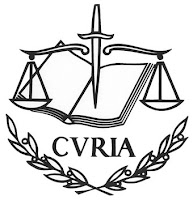Costs of ISP blocking injunctions: is there really an EU rule?

Yesterday the stunning London offices of Simmons & Simmons hosted a panel discussion on the implications of the recent Court of Appeal judgment in Cartier [ here ] . The debate also included the question of who should bear the costs of a blocking injunction: should it be intermediaries or rightholders? The Cartier decision and the dissent on costs In its ruling the Court of Appeal upheld the decision of Arnold J at first instance [noted here and here ] and confirmed that blocking injunctions can be also sought in online trade mark cases, even lacking an express implementation into UK law of the third sentence of Article 11 of the Enforcement Directive (" Member States shall also ensure that rightholders are in a position to apply for an injunction against intermediaries whose services are used by a third party to infringe an intellectual property rig...




